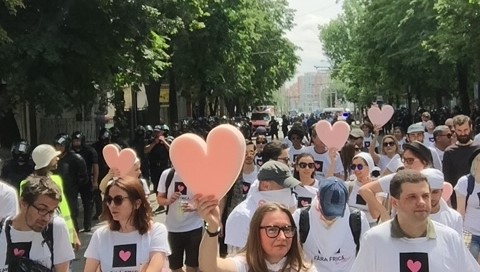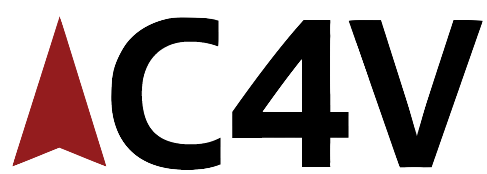Pride, for Everyone

Pride Month is here, but its significance varies enormously depending on your moral stance on sexual and gender minorities. Critics argue that gay and transgender people contravene norms of human relationships and identity that have largely prevailed – with some notable exceptions and grey areas – for millennia. In truth, heteronormativity and cisgender bias have been dominant in nearly every society, yet lesbian, gay, bisexual, transgender, and other types of queer persons have always existed. In the past century, colonial values and strong religious doctrines have pushed many LGBTQI+ people into the shadows, into a highly marginalized and often vulnerable status. LGBTQI+ people are reclaiming their place in the sun…our place in the sun.
For an ethicist, conflict of values is the stuff we tackle all the time. Being an ethicist who is part of the LGBTQI+ community and a Christian, the analytical challenge becomes much more personal and no less complicated. Put simply, the issue before us is the recognition and respect for the universal human dignity of all people, including LGBTQI+ people. That means including me too.
Uganda is a country that I have known since my first visit in 1982. I have a very big place in my heart for Uganda and Ugandans, but it can be a tough country. As a Fulbright professor for the 2005/6 academic year in the philosophy faculty at Makerere University in Kampala, my class in ethics in public policy was a delight to teach. The students admirably rose to the scholarly challenge of evaluating the norms behind many of the social strains of Ugandan society: tribalism, sexism and misogyny, gender based violence, elite domination of the economy and politics, faltering democratic values, endemic corruption, and a weak public service ethos. There were also many values that stood in the way of prioritizing equitable access to health, education, employment, and poverty alleviation. My students were particularly animated when we discussed one case study: the impact of corruption on undermining the national soccer team, the Uganda Cranes. This team, whose management was badly affected by corruption, had not qualified for participation in the prestigious Africa Cup of Nations tournament since 1978, when they finished second. (Note: They did qualify again in 2018/19, well after my time in Uganda).
I was therefore taken aback when we came to the point in the syllabus where the topic was Uganda’s social, religious, political, and legal policy positions on sexual and gender minorities. My students did not know my own status (I began my gender transition in 2008, just after my Fulbright time in Uganda), but when we got to that class there was a palpable heaviness in the air. They had all seen the topic listed in the syllabus, and they quickly made it clear to me that they had no intention of discussing this topic. Their solidarity extended to a shared refusal even to do the assigned reading. I pushed back against their closeminded stance, and I made the case to them that public policy must not exclude anyone – that everyone had equal human dignity and the government and society must recognize and respect this dignity. They were unmoved. One student told me that she had discussed this with her pastor at her church, and she had been told that to even discuss this topic would be a serious sin. Her comment opened the door to similar reports – pastors, imams, and priests had independently united to forbid my students from engaging on this topic. It was an impasse I could not overcome.
A decade later, in May of 2018, I was in Chișinău, Moldova as the keynote speaker at an International Development Ethics Association (IDEA) conference on marginalized peoples, human rights, and development ethics. It transpired that the Moldovan LGBTQI+ community would be holding their march for Pride Month the day after the conference, and I was determined to join that event, even though I was aware that this would be unlike any Pride events I had been to in Washington, DC. Moldova is a deeply homophobic society, where the notion of same-sex relationships is anathema to 95% of the population. While transgender transitions are legally allowed, there are many accounts of extreme bullying and violence against the Moldovan transgender community as well. The Orthodox Church in Moldova is a significant driver of this intolerance, as was the then Moldovan president Igor Dodon.
I joined the roughly 800 marchers who were mostly Moldovans, but there were also people from the expatriate community: ambassadors and their staff, Peace Corps Volunteers, and staff from international nonprofit organizations. The march took place amidst loud, angry, and very large crowds of anti-LGBTQI+ Orthodox Christian protestors who tried repeatedly to attack us. We had been advised to bring umbrellas – not because of the rain (there was none), but because of the bottles that would be thrown at us. The umbrellas were put to good use, and the heavily armored local police cordons on either side of us kept us reasonably safe. Still, marching through such an environment of fury and high-decibel vehemence, stirred up by members of a religion that is supposed to be based on the teachings of Jesus, was to feel the vulnerability that LGBTQI+ Moldovans live with every day. There would be little traction gained by reminding Moldovan Orthodox Christians that Jesus taught others to be loving and forgiving – especially toward those who were considered outcasts in society.
In both Uganda and Moldova, the opportunity to engage in a deliberation about moral values and ethics was and remains foreclosed by misinformation, and an irrational and deeply entrenched societal commitment to exclude LGBTQI+ people from the universe of humans who hold equal dignity and worth. Living and working now again in the United States, I can see a similar refusal to engage among many of my own fellow citizens, who are increasingly energized to enlist in a “culture war” of values against my community. Their anti-LGBTQI+ stance begins with the irrational and scientifically incorrect premise that being homosexual, bisexual, transgender, or any other permutation of queer is a choice, or is merely a superficial lifestyle. American Christianity is deeply divided between “open and welcoming” congregations and clergy, and people who identify as Christians but hold the position that LGBTQI+ people are not a “true” or “real” marginalized minority deserving to have their dignity and rights recognized and respected. Some Christians – here and abroad – believe that queer people are mentally incompetent or have unwittingly been “recruited” into a life of sin. I, and the many LGBTQI+ people here and around the world whom I value as my dear friends, are demonstrably not deficient intellectually, and my Quaker beliefs utterly reject the notion that my life is awash with sin.
The anti-LGBTQI+ reality is the context that American international relief & development firms and organizations face as they now turn their focus to inclusive development and its overlap with diversity, equity, and inclusion (DEI). The DEI commitment to embrace anti-racism, now quite strong among such practitioners here, has yet to be met by a similar embrace of the LGBTQI+ community, at least as measured by the DEI budgets of such firms and nonprofits. There are exceptions; both Save the Children US and Corus International are moving forward to fully engage in training and organizational HR policies that embrace LGBTQI+ persons, having each decided to be a proactive force in recognizing and respecting universal human dignity for all marginalized people and groups. But what may be seen as an appropriate moral and ethical step in the US-based home offices of such firms and organizations is far more challenging when it comes to field offices, or to relationships with local partners in countries where LGBTQI+ status is criminalized or otherwise oppressed. Unfortunately, that applies to most Global South countries.
Is it morally permissible to have two co-existing yet fundamentally disparate standards of diversity, equity, and inclusion? Specifically, can we accept one moral standard that accepts sexual and gender minorities and promotes their dignity here in the United States, and another that brackets LGBTQI+ people in the Global South for a different policy? The argument is that since LGBTQI+ people and issues in much of the Global South are too controversial and not in alignment with local social, religious, political, or cultural values in these countries, they must be excluded from the home office standards.
The Center for Values in International Development can find no moral justification for making that trade-off. The very premise of international relief & development is that all persons, everywhere, deserve to achieve a standard of wellbeing that is commensurate with universal human dignity. There can be no exceptions. Now, in this Pride Month, the Center invites all within the relief & development community to own this moral obligation. We recognize that achieving a uniform standard of full inclusion of sexual and gender minorities cannot be imposed by the Global North, and we know that our societies often are far from being exemplary in this context. Still, we can find many ways to be catalysts, facilitators, and supporters of a dignity discourse that leads inexorably to inclusion. A noteworthy example, in a different battle of values, was pioneered years ago by Molly Melching and the Tostan Community Empowerment Project (CEP) in Senegal. Through the CEP, Tostan created space ultimately in eight African countries to reflect on and ultimately to take strong, locally led action to redefine another vexing human dignity challenge: the complex values involved in female genital cutting (FGC). It took many years; all societies are slow to examine and change their entrenched moral values and practices.
Having divergent values and attitudes on sensitive moral issues is hardly new for those of us involved in international relief and development. When values conflict, there is an opportunity to engage in a deliberation – provided that the process is characterized by shared commitments to respect human dignity, to mutual respect, and to deep listening and careful reflection on all sides. As with Tostan’s CEP, it will take time, but it can – and from the perspective of universal human dignity, must be done.
The time to begin is now.
Chloe Schwenke, Ph.D.
Photo credit: Chloe Schwenke


